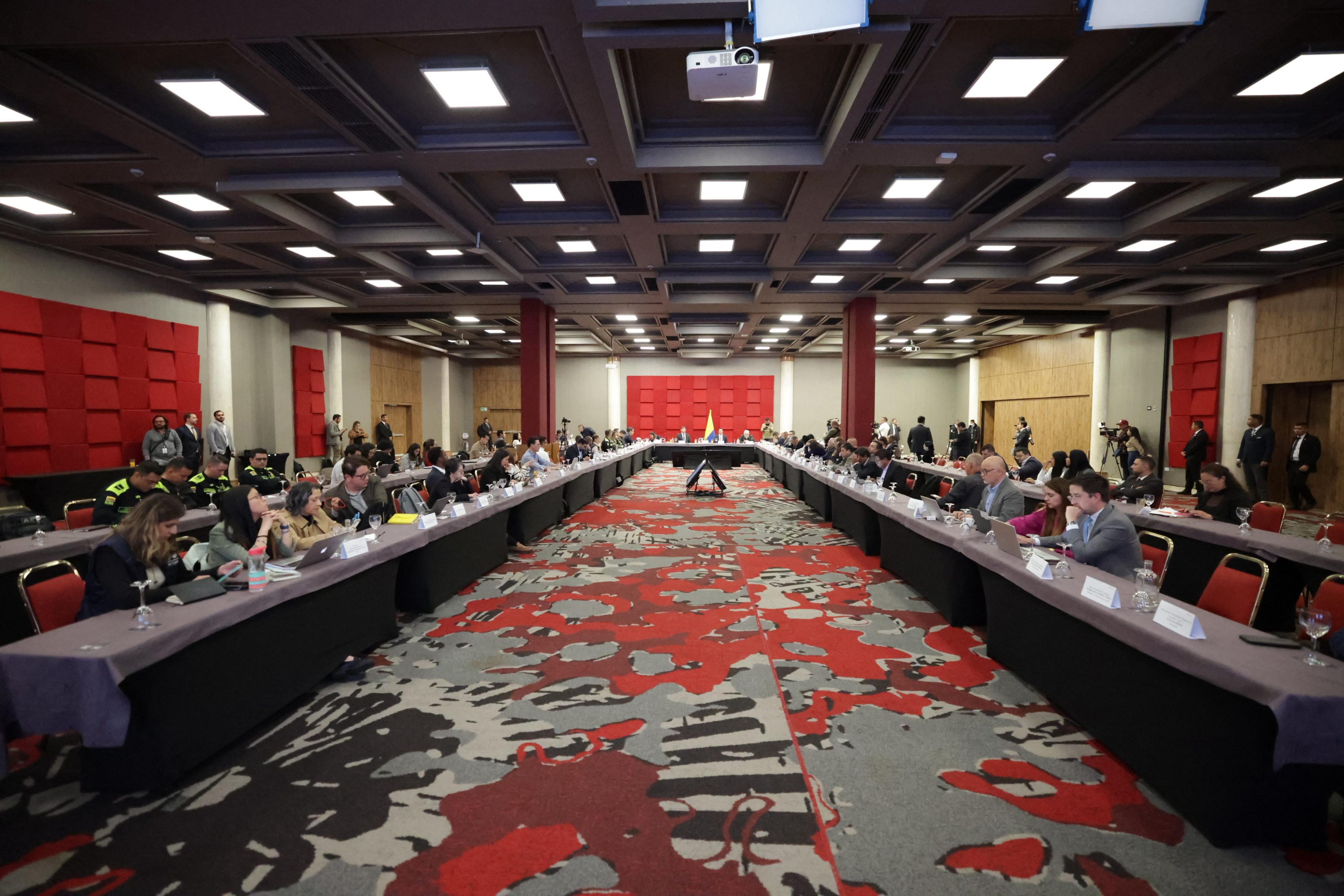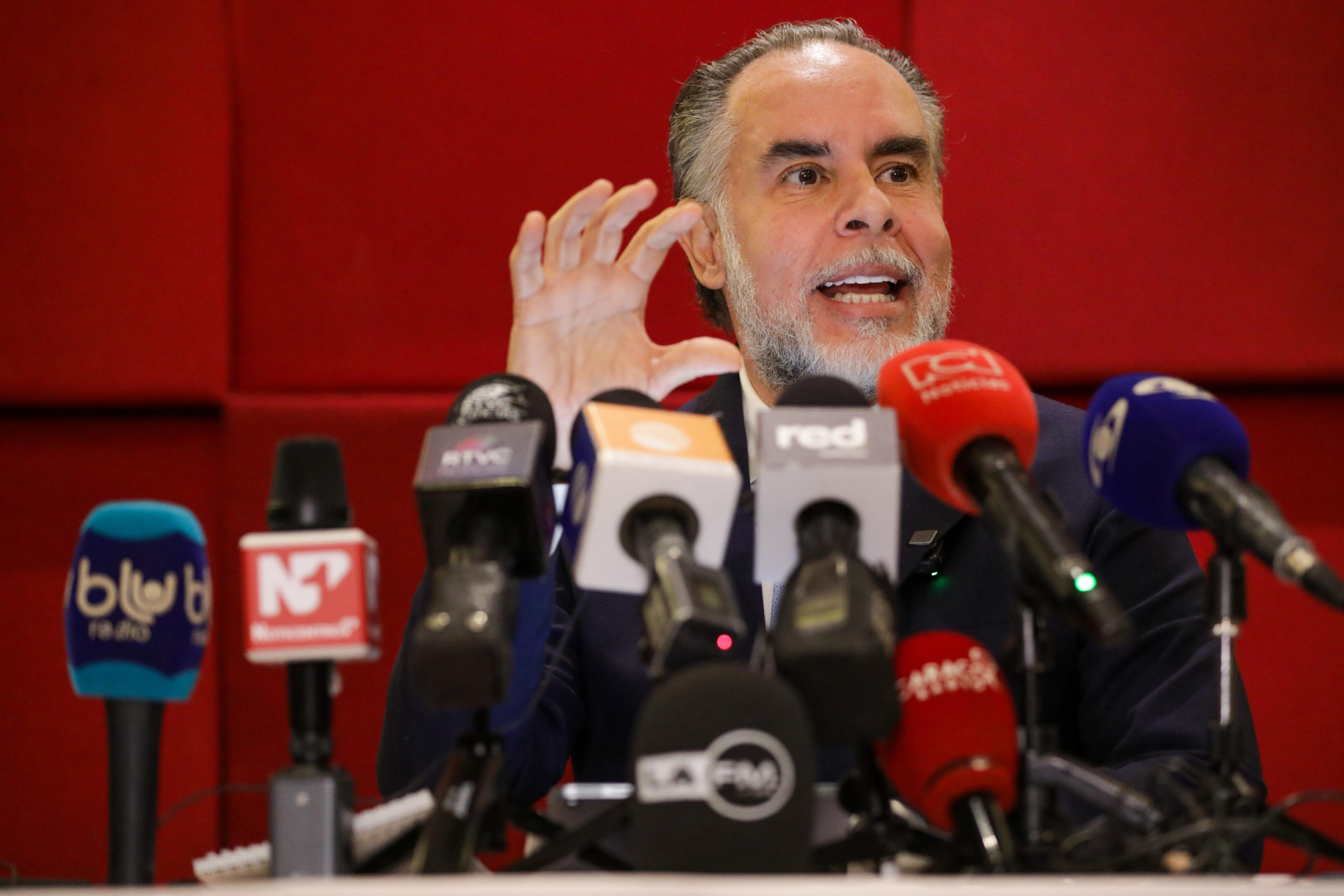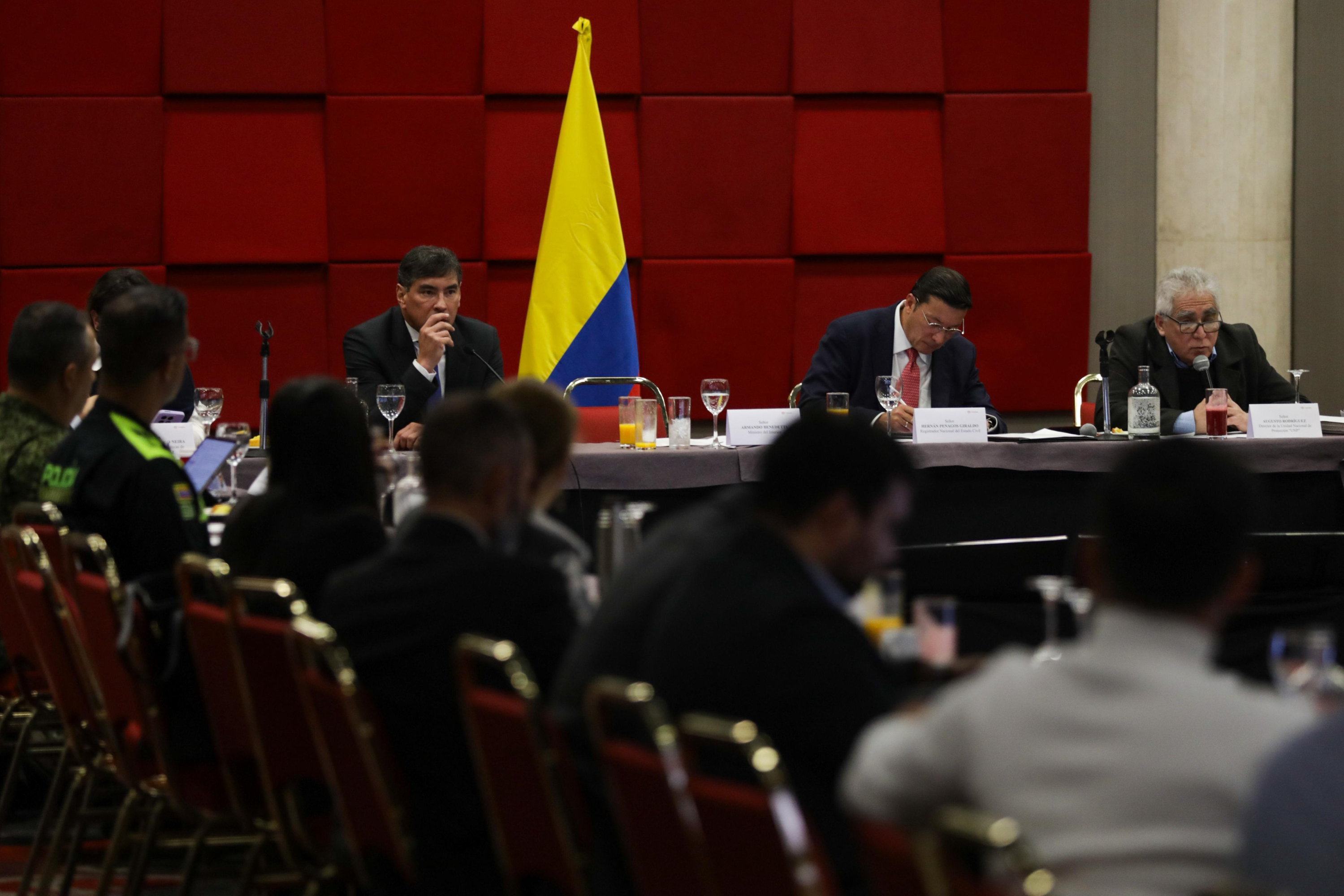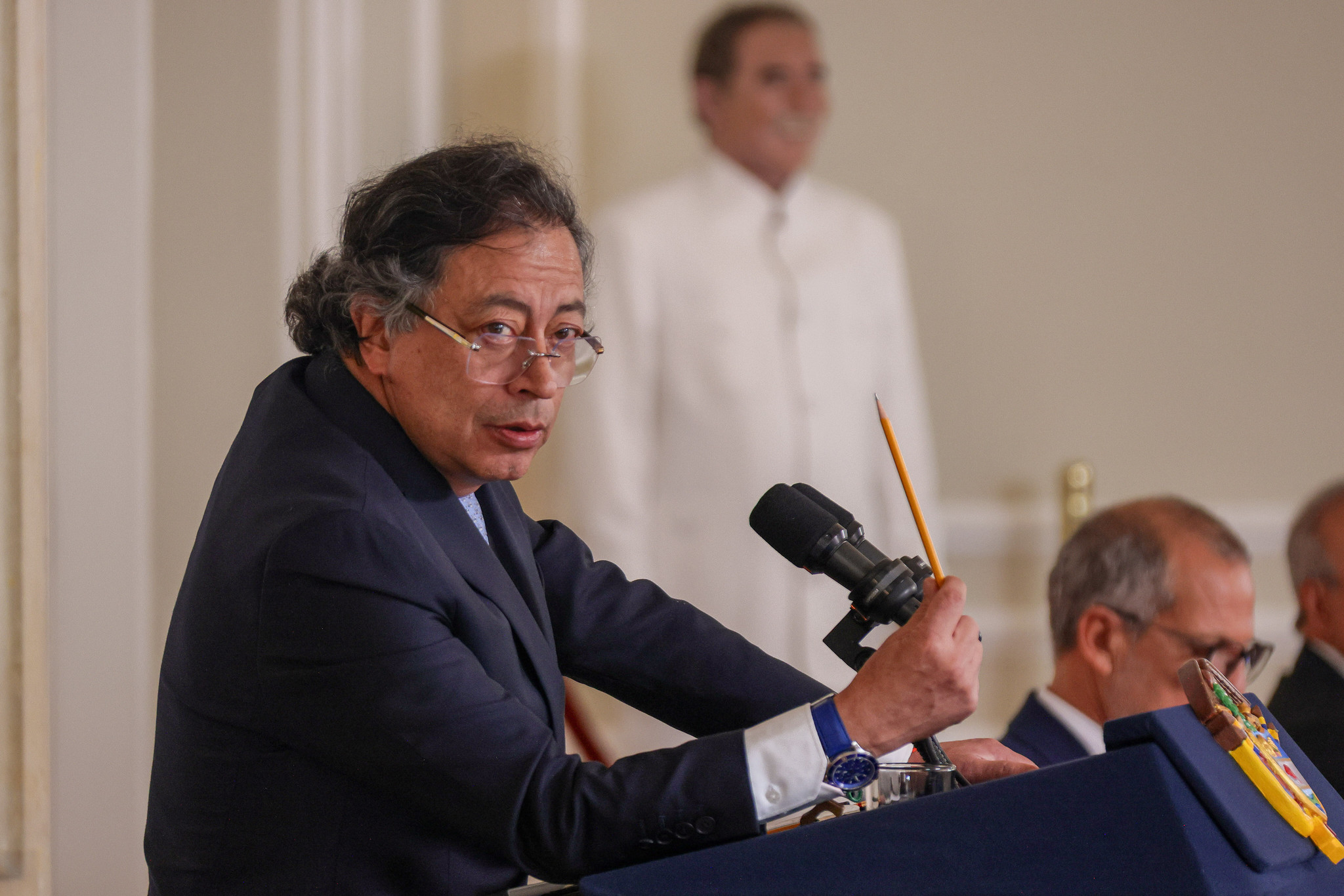'The Council of State's ruling on electoral software was fulfilled in 2022,' says Registrar Hernán Penagos.

The Registry and the Government held their first formal meeting after President Gustavo Petro raised doubts about the transparency of the 2026 elections, a position that generated strong statements from the political, legal, and trade union communities in support of the soundness of the Colombian electoral system.
It was held at the Tequendama Hotel in Bogotá, within the framework of the Fourth Electoral Monitoring Commission, which houses the institutions responsible for ensuring the transparency and security of the 2026 elections. Thirteen political parties, who signed a letter alleging "the lack of minimum guarantees," which, in their opinion, the government fails to offer, refused to attend.
It was an opportunity for the Executive Branch to delve deeper into its criticisms of the electoral system and, in turn, for the electoral authority to respond.

Electoral Guarantees Commission. Photo: César Melgarejo, EL TIEMPO
Interior Minister Armando Benedetti reiterated that the Nariño House of Representatives is concerned about full compliance with a ruling by the Council of State ordering the Registry to implement "structural corrective measures" for the electoral system.
" Among these corrective measures is that the counting software be state-owned. More than five years have passed, and the entities mentioned there have partially failed to comply with these provisions," Benedetti asserted.
In 2014, the Council of State discovered software inconsistencies that impacted the MIRA results. These flaws were evident in 1,412 polling stations, with system changes at various levels: 2,492 records and 1,130 polling stations at the departmental level; 959 records and 341 polling stations at the municipal level; and 179 records and 75 polling stations at the zonal level.

Armando Benedetti, Minister of the Interior. Photo: César Melgarejo EL TIEMPO
The high court insisted that the State must own the voting software to ensure both security and complete traceability of transactions made on the platform.
And so it was: the Registry purchased a vote-counting program from Indra for the 2022 elections and delivered it to the National Electoral Council (CNE) for use.
In this regard, registrar Hernán Penagos stressed that the software was purchased from the Spanish company Indra, not Thomas Greg & Sons : "In the last elections, the vote-counting software was managed by the National Electoral Council (CNE), both for the congressional and presidential elections . It should be noted that the software was purchased from the Spanish company Indra and will again be made available to the CNE ," he pointed out.

In the background are the president of the National Electoral Council (CNE), the National Registrar, and the director of the National University of Puerto Rico (UNP). Photo: César Melgarejo, EL TIEMPO
Penagos also announced that for the upcoming elections, access to the source code of the counting software will be permitted, in order to guarantee the transparency of these elections and public confidence.
He also said that external audits will be contracted to monitor all stages of the electoral process, and a cybersecurity tool will be acquired to protect the integrity of the system and reduce cyber risks.
President Petro's criticism of the software 
President Gustavo Petro. Photo: Joel Gonzalez. Presidency
On Thursday morning, President Gustavo Petro reiterated his criticism of the electoral system. "In any democracy, political parties should be able to audit the algorithms of the election computer software to determine whether it is transparent. This right to vote has never been exercised in Colombia," he said.
And he again lashed out at former registrar Alexander Vega: "I myself asked registrar Vega to allow it, and I included it in the draft electoral code being debated in Congress. Vega didn't even agree to hand over the software algorithms, and the electoral code fell apart in the Constitutional Court."
Vega was the leader of the 2022 elections, in which the Historic Pact won the majority in Congress and Petro himself won the Presidency of the Republic.
Juan Pablo Penagos Ramirez
eltiempo





